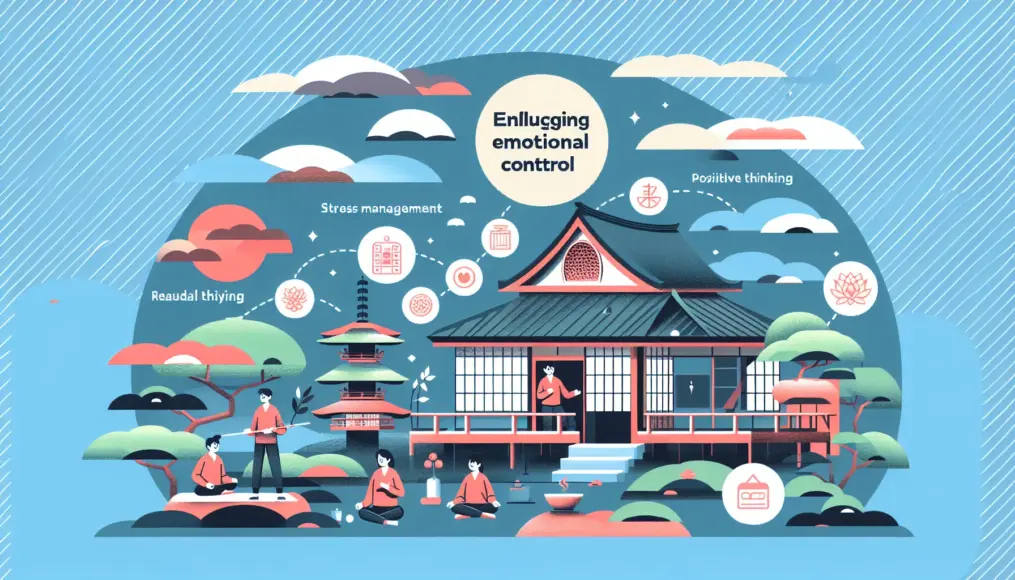Controlling our emotions is an essential skill that can greatly enhance our daily lives. It’s completely normal to experience emotional highs and lows; everyone goes through it. However, by learning to manage our emotions effectively, we can reduce stress and foster a more positive mindset.
In this article, we’ll explore some practical habits for emotional regulation. We’ll delve into the benefits of mindfulness, keeping a journal, and consciously using positive language, and how these practices can have a profound impact on our mental well-being. By managing our emotions well, we can gain a better understanding of ourselves and enjoy life more fully.
While mastering emotional control doesn’t happen overnight, you’ll certainly notice positive changes as you build small, consistent habits. Let’s take the steps needed to manage our emotions and create a better life for ourselves.
- Understand what emotions are and consider their impact on daily life
- Explore methods for emotional management using mindfulness and journaling
- Tips for reducing stress and promoting positive thinking
The Basics of Emotion Control
Controlling our emotions is a crucial element in enriching our lives. Emotions deeply influence our thoughts and actions. It’s common to experience moments when our feelings soar or plummet throughout our daily lives, but effectively managing these emotions can reduce stress and help us build better relationships. In this section, we will explore what emotions are and how they impact our everyday experiences.
What Are Emotions?
Emotions refer to the states that arise in response to various stimuli. We experience a wide range of emotions—joy, sadness, anger, fear, and many others—each triggering unique reactions. Our emotions significantly shape how we interact with our environment and others. They are also linked to physiological changes, affecting our heart rate, breathing, and muscle tension.
Understanding our emotions in daily life is the first step toward deeper self-awareness. By recognizing and managing our feelings appropriately, we can reduce stress and anxiety, ultimately enhancing our sense of well-being.
- Emotions influence our thoughts and actions.
- Understanding emotions deepens self-awareness.
- Proper emotional management alleviates stress.
The Impact on Daily Life
Emotions directly affect our behavior and choices. For instance, when we feel joy, we are more likely to make positive decisions, whereas feelings of anger or sadness can cloud our judgment. The state of our emotions can significantly impact various aspects of our daily lives.
Moreover, emotions play a pivotal role in our relationships with others. Positive emotions facilitate smoother communication and help build trust. On the other hand, negative emotions can lead to conflict and strain in our interpersonal connections. Therefore, being able to control our emotions is essential for maintaining healthy relationships.
- Emotions influence behavior and choices.
- Positive emotions improve relationships.
- Negative emotions can undermine interpersonal connections.
Effective Habits for Managing Emotions
To effectively manage your emotions, it’s essential to cultivate habits that you can practice daily. Mindfulness and journaling, in particular, are powerful tools for understanding and regulating your feelings. By incorporating these habits into your routine, you can gain a clearer perspective on your emotions, reduce stress, and foster a more positive mindset. In this section, we’ll explore specific habits that can help you manage your emotions effectively.
Practicing Mindfulness
Mindfulness is all about focusing your awareness on the present moment. By practicing mindfulness, you can become more aware of your emotions and thoughts, making it easier to control them. For instance, by taking deep breaths and observing your feelings, you can remain calm even when your emotions are running high.
There are several ways to integrate mindfulness into your daily life. For example, during meals or walks, you can engage your senses to fully experience your surroundings, helping to calm your mind. By consciously creating these moments of awareness, you’ll find that you can manage your emotions more effectively.
- Mindfulness is a way to focus on the present moment
- Observing your emotions helps you respond calmly
- Incorporating mindfulness into daily life enhances emotional management
Writing Down Your Feelings in a Journal
Journaling is another effective tool for managing your emotions. By recording your daily experiences and feelings, you can better understand your emotional patterns. Putting your emotions into words helps to clarify any confusion in your mind and can lighten your mental load.
When you journal, it’s important to be honest about both positive and negative emotions. This practice allows you to accept your feelings and deepen your self-understanding. Moreover, looking back at your journal entries can help you recognize your growth and changes over time.
- Journaling helps you understand your emotional patterns
- Expressing emotions in words helps clarify your thoughts
- It’s important to record both positive and negative feelings
Managing Stress and Cultivating Positive Thinking
To effectively control our emotions, it’s essential to manage stress and foster a positive mindset. Stress can significantly impact how we feel, so incorporating appropriate relaxation techniques can help restore balance in both our minds and bodies. Additionally, using positive language can create a beneficial atmosphere for ourselves and those around us. In this section, we’ll explore specific methods for managing stress and promoting positive thinking.
Relaxation Techniques
Relaxation techniques are effective ways to release tension and reduce stress. There are many simple methods to incorporate into your routine, such as deep breathing, stretching, and meditation. Deep breathing, in particular, is highly effective for lowering heart rates and promoting relaxation. By finding a quiet place and slowly taking deep breaths, you’ll notice your mind calming down.
Stretching can also help alleviate physical tension. Engaging in light exercise improves circulation and refreshes your mood. By integrating relaxation techniques into your daily life, you can manage stress more effectively.
- Relaxation techniques help reduce stress
- Deep breathing and stretching are particularly effective
- Incorporating these techniques into daily life promotes mental and physical balance
The Power of Positive Words
Words carry a powerful influence over our emotions and thoughts. By using positive language, we can uplift our feelings and positively impact those around us. For instance, using affirming phrases like “I can do this” instills confidence and makes it easier to face challenging situations.
Moreover, when we speak positively to others, we strengthen our relationships. People tend to feel happier and more engaged when they receive kind words. By consciously using positive language, we not only aid in our own emotional regulation but also contribute to a more uplifting environment for everyone.
- Positive words influence our emotions and thoughts
- Affirmative language is crucial for building confidence
- Spreading positivity enhances our relationships with others
Tips for Establishing Lasting Habits
Developing habits that help you manage your emotions isn’t always easy. However, by setting small goals and regularly reflecting on your progress, you can effectively establish these habits over time. In this section, we’ll explore concrete tips to help you maintain emotional management routines. By grounding these habits in your daily life, you’ll be better equipped to control your emotions more effectively.
Set Small Goals
To solidify a habit, it’s essential to start by setting small, achievable goals. When you aim for large objectives, they can often feel overwhelming and lead to frustration. Instead, begin with manageable goals that you can easily accomplish. For instance, dedicating just five minutes a day to mindfulness practice or setting aside time to journal about your feelings are great examples.
By setting small goals, you’ll experience a sense of accomplishment that boosts your self-esteem. This, in turn, will provide further motivation and strengthen your resolve to maintain the habit. It’s important to find goals that resonate with you and steadily progress at a comfortable pace.
- Small goals help establish lasting habits
- A sense of achievement boosts self-esteem
- Setting personalized goals is crucial
Regular Reflection
Another key aspect of establishing habits is to engage in regular reflection. It’s vital to check in on your progress and identify what’s working and what challenges you’re facing. Setting aside time for this reflection allows you to better understand changes in your emotions and the effectiveness of your habits.
Ideally, this reflection should occur weekly or monthly, depending on what fits best with your lifestyle. Through this process, you can reassess your goals and set new ones, making it easier to sustain habits that help you manage your emotions effectively.
- Regular reflection helps track your progress
- It makes it easier to recognize changes in your emotions
- Reassessing and setting new goals can aid in habit continuity
Conclusion
Controlling our emotions is an essential skill that enriches our daily lives. In this blog post, we started with a basic understanding of emotions and introduced specific habits and techniques for managing them. By incorporating mindfulness, journaling, relaxation techniques, and consciously using positive language, we can gain better control over our emotions. Setting small goals and reflecting on them regularly are key to establishing these habits.
By practicing these methods, you can reduce stress and cultivate a more positive mindset. Effectively managing your emotions leads to healthier relationships and better mental well-being. Take the time to find the strategies that work best for you and develop a routine for emotional control.
- Controlling emotions is crucial for mental health
- Mindfulness and journaling are effective habits
- Reflection and setting small goals help solidify habits
Remember, mastering emotional control doesn’t happen overnight; it’s all about the daily practice. We’d love to hear about your experiences and thoughts on emotional management in the comments!













































Comment